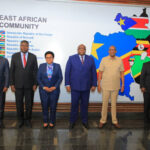The new year begins, it’s a perfect time to reflect on how we can better prepare our young people for the future.
A common stereotype about Tanzanians often mentioned by those who have traveled abroad is that we are laid back and slow to act. While such generalizations are rarely fair, they point to a broader need: teaching young people the value of planning their lives early.
Life planning, especially for children and teenagers, starts with understanding their dreams and aspirations. Childhood dreams often carry seeds of future passions and careers. However, in many families, these dreams are dismissed or overshadowed by parental expectations. When parents push children into fields that don’t align with their interests, the results are often disappointing. The child may comply to please their parents but lack the drive to excel in a path they don’t love.
On the other hand, when a child’s natural interests are nurtured and supported, they’re more likely to flourish. Guidance helps young people discover their strengths, understand their weaknesses, and identify what truly excites them. This approach is common in many Western countries, where schools and families work together to encourage children’s curiosity and shape their dreams. Tanzania can benefit from adopting similar strategies.
The consequences of neglecting early guidance are clear. Many unemployed young people today belong to one of two groups: those forced into careers chosen by their parents and those who received no career advice at all. Without proper direction, they struggle to find meaningful work or pursue careers that suit their talents.
Early exposure is also critical in shaping future professionals. A child interested in business, for instance, should be introduced to basic entrepreneurial activities, no matter how small. Similarly, a budding scientist or artist benefits from opportunities to explore their field of interest. The earlier this exposure happens, the better equipped the child will be to build on their passion and turn it into a career.
Take, for example, the story of a doctor who spends years in medical school, not out of passion but to fulfill parental expectations. Such a professional might excel in exams but feel disconnected from their work, which can affect their performance and job satisfaction. While medicine requires rigorous training and discipline, a lack of genuine interest can make the profession feel like a burden rather than a calling.
Also Read; Tanzania Seeks Investors for $400 Million Soda Ash Plant
Critics argue that professionalism often stems from skill and training rather than talent. They point out that many people balance their careers with hobbies or talents, which can enhance mental health and overall well-being. Schools, for instance, encourage students to combine academics with sports, music, or other extracurricular activities, fostering a more rounded development.
To build a generation that can compete globally in fields like science, technology, leadership, and business, Tanzania must prioritize early guidance. Parents, teachers, and communities should work together to help young people align their passions with their career paths.
As we move into 2025, it’s time to focus on nurturing dreams and planning for a future where every child has the opportunity to succeed on their terms. By supporting our youth in finding their passions, we not only enrich their lives but also strengthen the foundation of our nation’s future.








Regards for helping out, good info. “I have witnessed the softening of the hardest of hearts by a simple smile.” by Goldie Hawn.